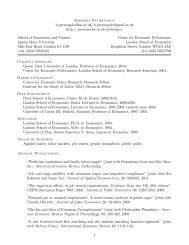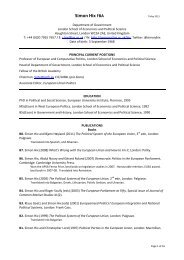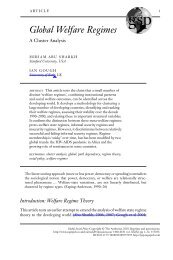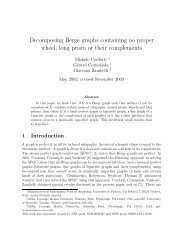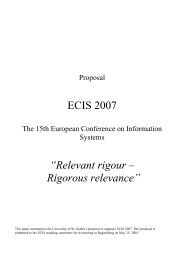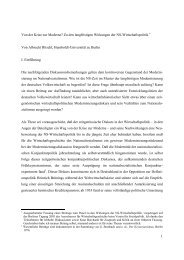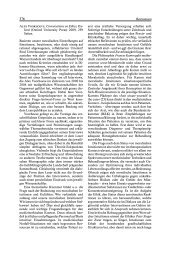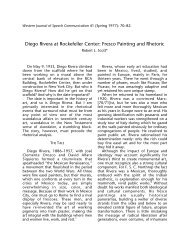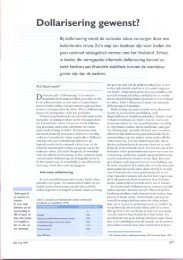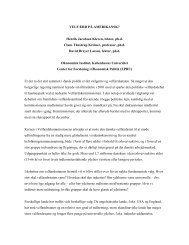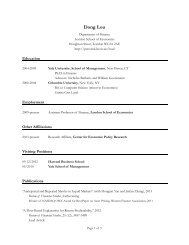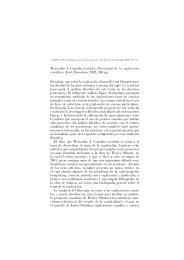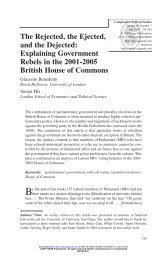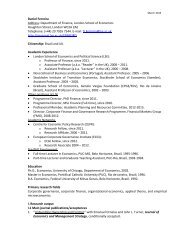View PDF - LSE - London School of Economics and Political Science
View PDF - LSE - London School of Economics and Political Science
View PDF - LSE - London School of Economics and Political Science
You also want an ePaper? Increase the reach of your titles
YUMPU automatically turns print PDFs into web optimized ePapers that Google loves.
Quite interestingly, several interviewees, including both migrants <strong>and</strong> permanent local<br />
residents, expressed their support for the idea <strong>of</strong> granting some kind <strong>of</strong> compensation to<br />
migrants. Migrants’ asset investment in host cities is pointed out as one <strong>of</strong> the reasons<br />
for advocating the provision <strong>of</strong> compensation for migrants: This essentially builds upon<br />
people’s notion <strong>of</strong> associating compensation with property ownership rights.<br />
A migrant interviewee (P10), who had lived in Pazhou for about 10 years before his<br />
displacement <strong>and</strong> owned a residential property therein, argues that migrants should<br />
“receive compensation, as numerous migrants have invested in the neighbourhood”.<br />
This view is shared by an elderly migrant interviewee (P3) who was displaced after<br />
living in Pazhou for about 2 years. He was in favour <strong>of</strong> allowing compensation “if<br />
[buildings were] rented <strong>and</strong> have a signed contract”, adding that:<br />
“Let me give you an example...The father <strong>of</strong> that man who set up the factory had invested<br />
money there [in Pazhou], renting a building from someone with a surname Xie <strong>and</strong> signed<br />
a contract...In the contract it was as such that relocation compensation would all be his<br />
l<strong>and</strong>lord’s. The result was that he did not receive any. It was miserable for him. He<br />
invested a lot <strong>of</strong> money <strong>and</strong> did not retrieve any”<br />
Migrants’ contribution to the city <strong>and</strong> their neighbourhoods was also highlighted. For<br />
instance, a local villager from Pazhou (P4), holding a Guangzhou hukou, advocates the<br />
idea <strong>of</strong> making relocation provision for migrants on the condition that their<br />
contributions to the city can be proven. He further iterates:<br />
“Whether or not to gain the benefits [that is, compensation] should assume some<br />
conditions <strong>and</strong> [each case] differently treated. Some people are working within the village,<br />
having worked many years, <strong>and</strong> it is right for them to receive some benefits. But, for those<br />
who have recently arrived <strong>and</strong> rented their dwelling, why should they be given<br />
compensation?”<br />
Compensation in general may include monetary compensation as well as in-kind<br />
compensation (relocation or re-housing units). However, when referring to migrant<br />
tenants’ eligibility, respondents tend to make a distinction between monetary<br />
compensation (buchang in Chinese) <strong>and</strong> relocation arrangements (anzhi in Chinese),<br />
associating the former with property ownership <strong>and</strong> the latter with tenancy: Instead <strong>of</strong><br />
referring to compensation, an original villager (P6) who used to own a house before his<br />
displacement from Pazhou (P6) prefers to assert that migrants “should be given<br />
relocation [housing], since they have contributed to the construction <strong>and</strong> development<br />
Shin, H.B. (2013) Antipode DOI: 10.1111/anti.12010 | Page 17 <strong>of</strong> 29



